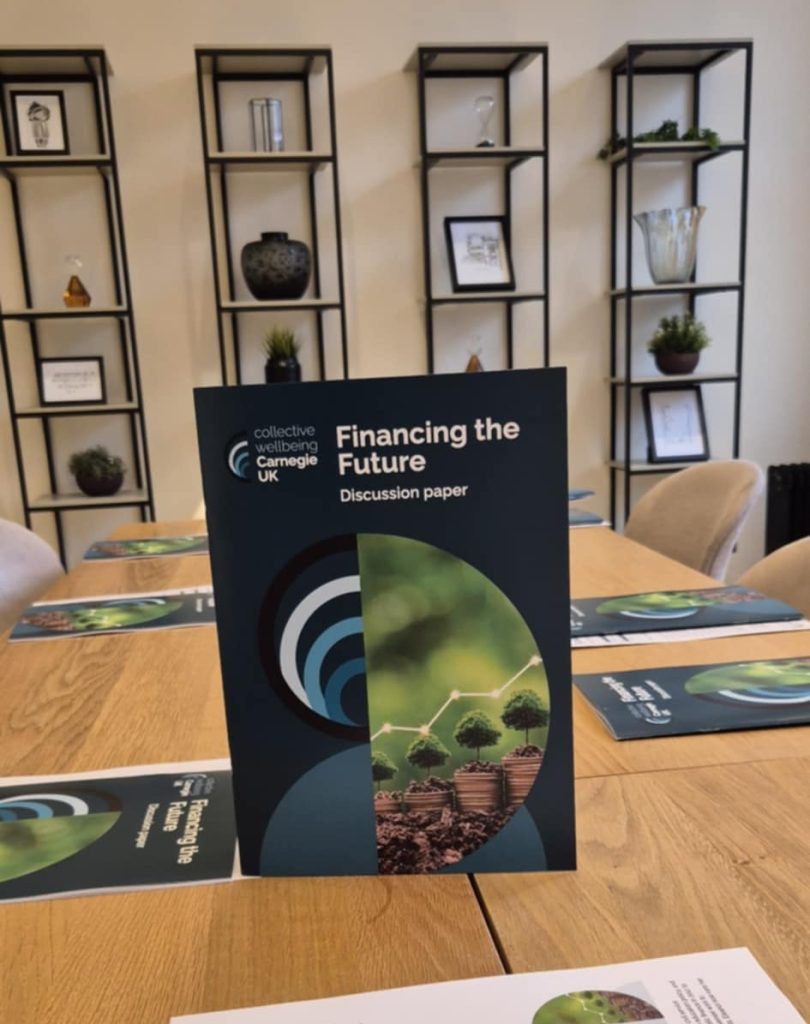Learning about how to finance the future

- Joanna McGilvray, Carnegie UK
- 1 October 2025
- 3 minute read
Since May 2024, Carnegie UK’s Financing the Future programme has been diving into some of the biggest public finance challenges facing the UK. Our mission? To explore what a collective wellbeing approach to public finances – how governments raise and spend money – could look like across the UK.
In March 2025, we published a policy discussion paper that laid the groundwork. It unpacked the UK’s current and projected financial landscape and examined our collective social, economic, environmental, and democratic wellbeing through the lens of our Life in the UK index.
From that foundation, three key areas emerged that demanded closer attention. We wanted to hear directly from experts across academia, business, economics, government, public policy, and the third sector. So, we hosted roundtable discussions in Glasgow, Cardiff, Newcastle, and Belfast, using our paper as a springboard.

What stood out? Many of the most powerful insights weren’t about money at all. They focused on the non-financial shifts – in culture, leadership, structure, and risk appetite – that are essential to tackling the financial challenges ahead.
We also knew we needed to hear from the public. We partnered with The Social Agency to run a series of focus groups across the UK to explore perceptions of taxation. The findings were striking: many people feel the tax system is not fair, not delivering, and not something they can change. These views are deeply entrenched, and they matter.
To support governments keen to embed wellbeing into budgeting, we teamed up with Dr Cressida Gaukroger to explore international examples. Her report showcases innovative tools and emerging practices from around the world that could help transform public spending for the better.
What’s next
Bringing all these threads together, we’ve developed a series of policy recommendations aimed at helping governments focus on what really matters: better outcomes for people.
Some of these are technical in nature. For example, we suggest policymakers could sharpen their approach to second round fiscal effects to include a stronger focus on impacts like reduced demand for services. We also argue that we could build on the way the UK government uses wellbeing cost benefit analysis in decision making – learning from good practice in New Zealand.
But we’re also interested in creating the right conditions for change and building trust through improving communication about the tax system, focussing on accessibility and clarity.
And then there are the bold ideas: like engaging the public in a deliberative process to shape a new fiscal framework for the UK. Or exploring enhanced borrowing powers for devolved governments.
We’ll be continuing this work for the rest of the year, homing in on key issues for policy development. If this resonates with you, we’d love to hear your thoughts.
Help us make the case for wellbeing policy
Keep in touch with Carnegie UK’s research and activities. Learn more about ways to get involved with our work.
"*" indicates required fields
